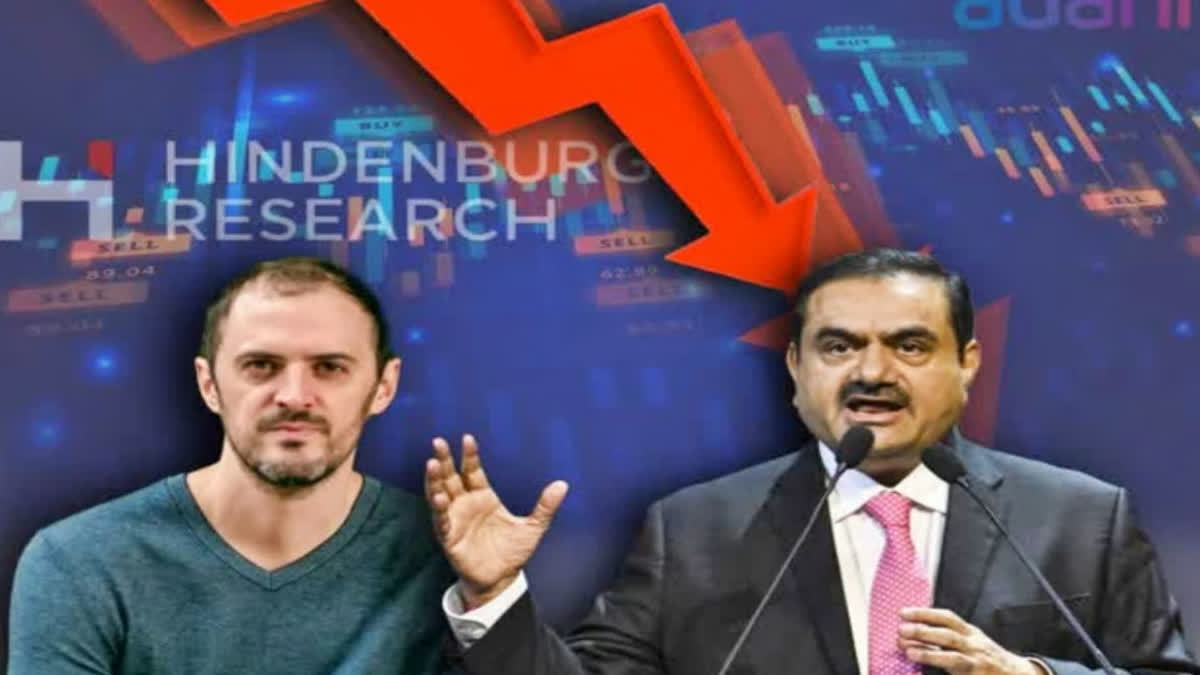New Delhi: Market regulator Securities and Exchange Board of India (Sebi) Monday told the Supreme Court that the challenges faced by it for getting the details about the economic interest holders in the Adani Group companies was not because of the repeal of the opaque structure provisions in 2019.
Sebi said the changes made in Foreign Portfolio Investors (FPI) regulations in 2018 and 2019 effectively tightened the disclosure requirement related to beneficial owners (BOs).
The Supreme Court-appointed committee — headed by retired judge AM Sapre probing the Adani-Hindenburg controversy — had cited the change in rules as one factor, which made it difficult for the Sebi to identify beneficiaries of offshore funds which allegedly invested in the companies of the Adani Group.
“The report of the Expert Committee suggests that the difficulties experienced by SEBI in identifying holders of economic interest were at least partly because of the repeal, in 2019, of the 2014 provisions on opaque structures. However, this was not the case,” said Sebi, in an application regarding its view on the report of the court-appointed committee filed on July 10.
Sebi said under FPI 2014 regulations, certain entities that undertook to provide BO details when sought, were allowed to be registered as FPIs i.e, upfront BO declaration was not a requirement. It said that also it may be noted that the requirement to disclose BO was triggered only in respect of the entities who were holding above the threshold limit as per the “Master Circular, i.e. 25%. There never was any requirement to disclose the last natural person above every person owning any economic interest in the FPI".
Sebi said, “Thus the changes made in FPI Regulations in 2018 and 2019 effectively, tightened the disclosure requirement related to BOs”. It said that in the 2019 FPI Regulations, the reference to opaque structure was deleted and in essence, mandating up-front BO in 2018 tightened the 2014 FPI regulations and in 2019, the reference to such structures was removed, to end ambiguity. “Thus, across the changes in 2018 and 2019 FPI Regulations, the framework around FPI BO disclosures were continuously tightened," it said
Sebi said that this strengthening rendered the concept of opaque structures (as defined under FPI 2014 Regulations) redundant, since upfront compliance with BO disclosure as per PMLA was now mandated for all FPIs irrespective of structure (the only exception being government and government-related entities).
Sebi said: “The challenges presented before the Expert Committee in respect of getting the details about the economic interest holders, did not emanate from the repeal of the opaque structure provisions in 2019”.
It said, “Instead, the issue primarily arose from the existence of thresholds for determination of BOs. In fact, the thresholds were only lowered (i.e., made tighter) between 2014 and 2019. In addition, there never was any requirement to disclose the last natural person above every person owning any economic interest in the FPI".
In January, U.S.-based short-seller Hindenburg Research alleged improper governance practices and use of tax havens by Adani, which was denied by the group. A court-appointed panel was asked to examine measures on investor protection and review SEBI's findings in the matter. In May, the panel, in its report, said: “Yet, in 2020, the investigation and enforcement has moved in the opposite direction, stating that the ultimate owner of every piece of economic interest in an FPI must be capable of being ascertained. It is this dichotomy that has led to SEBI drawing a blank worldwide, despite its best efforts”.
The panel had suggested that there should be timelines stipulated for the initiation of investigations, completion of investigations, initiation of proceedings, disposal of settlement, and disposal of proceedings.
Sebi, in its application before the apex court, said: “The nature, scope and complexity of cases in securities market vary significantly, and reasonable time to complete investigation would depend on the facts of each specific case and availability of information. Therefore, prescribing specific timelines to complete the investigation may compromise the quality of the investigation”. Also, it may create constraints for the board to function efficiently and also increase litigation, added Sebi.
The apex court has asked the regulator to submit its report by August 14 and the court is scheduled to take up pleas seeking a probe into the Adani-Hindenburg controversy on July 11.
Also read: 5-Months of Hindenburg Report: Adani says confident of governance, disclosure stds


